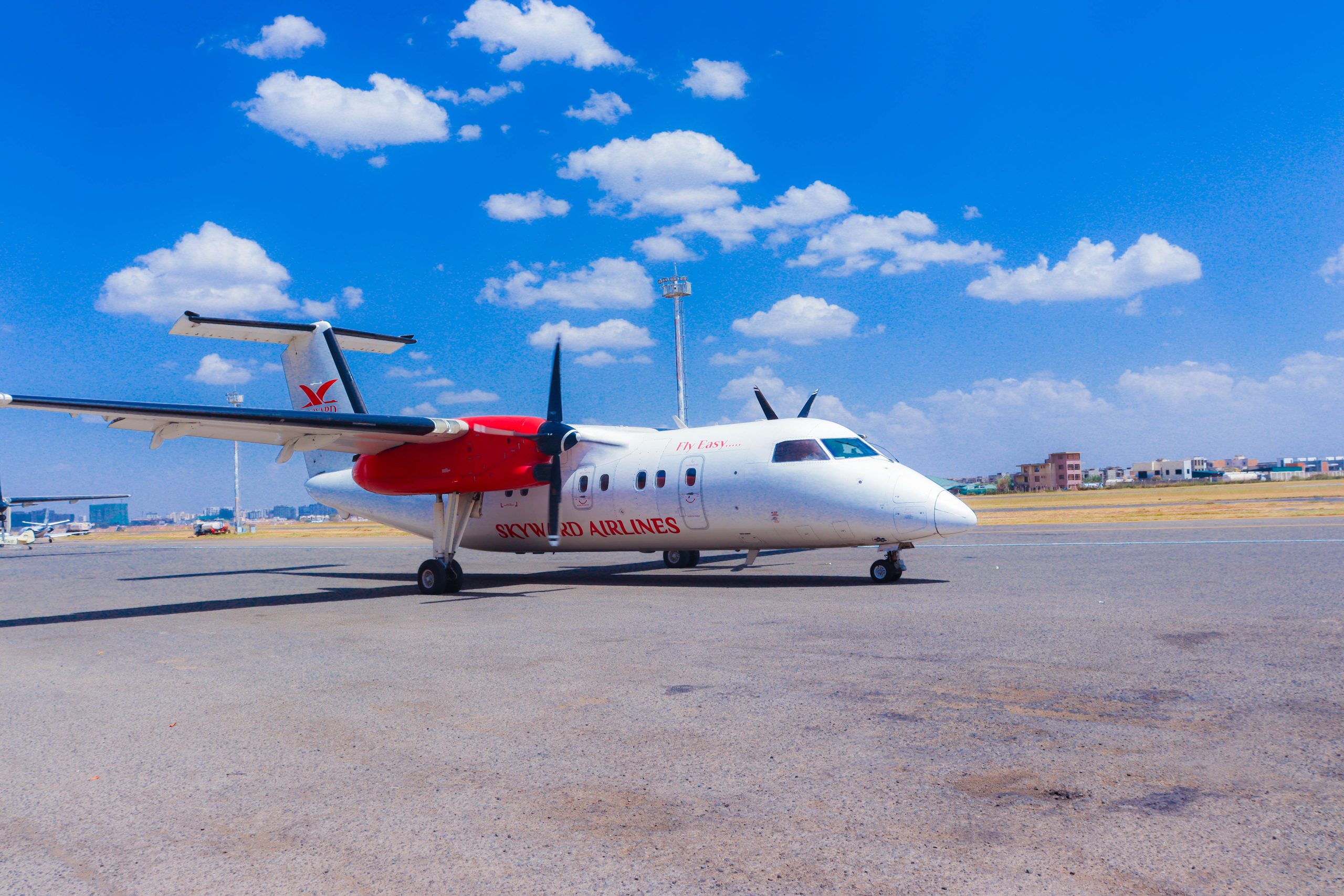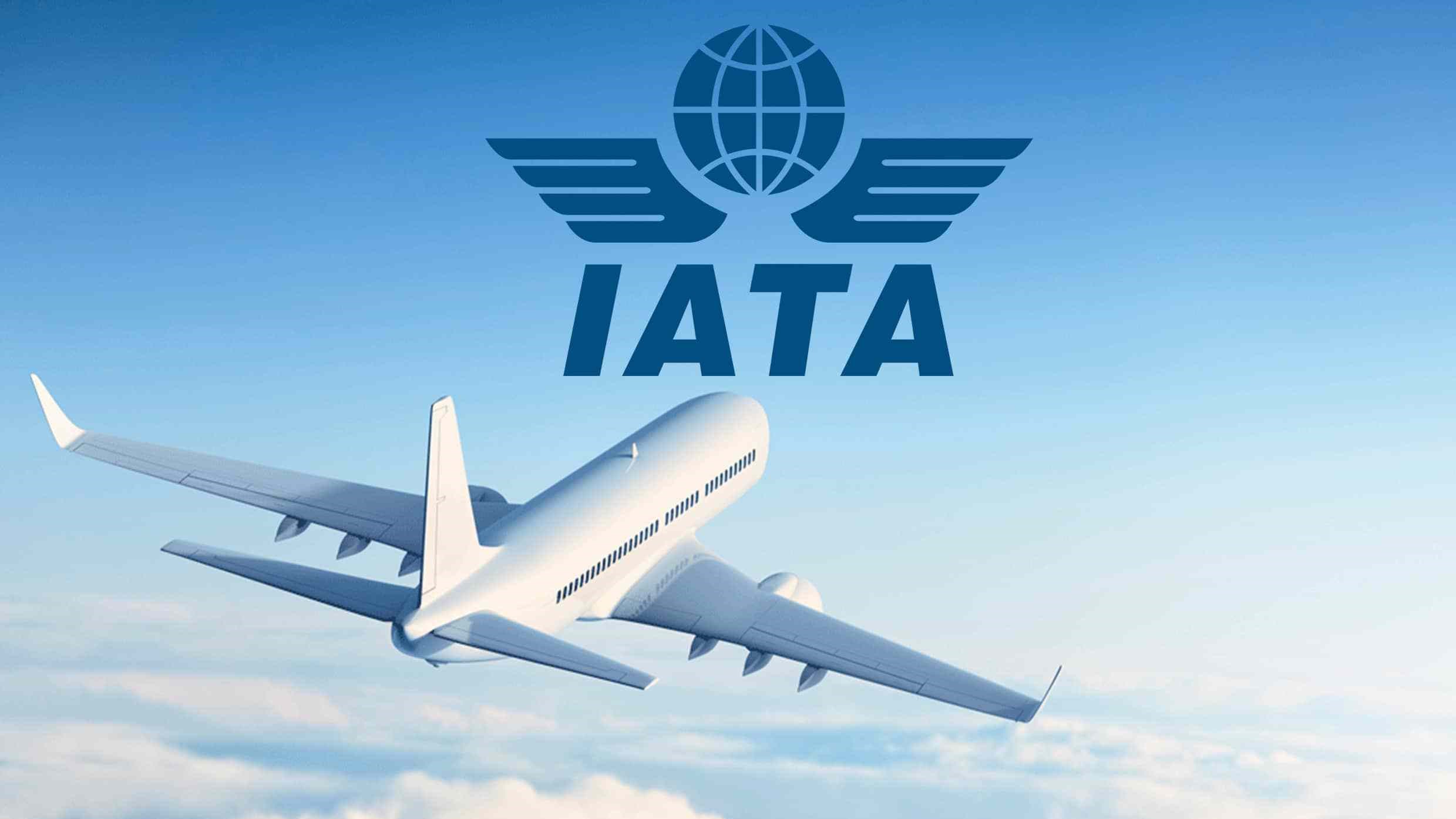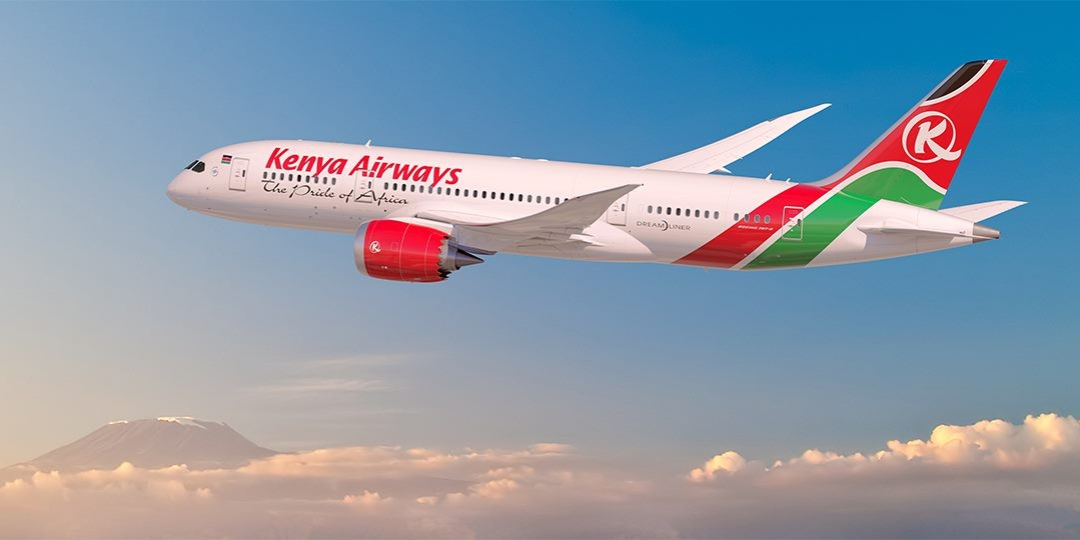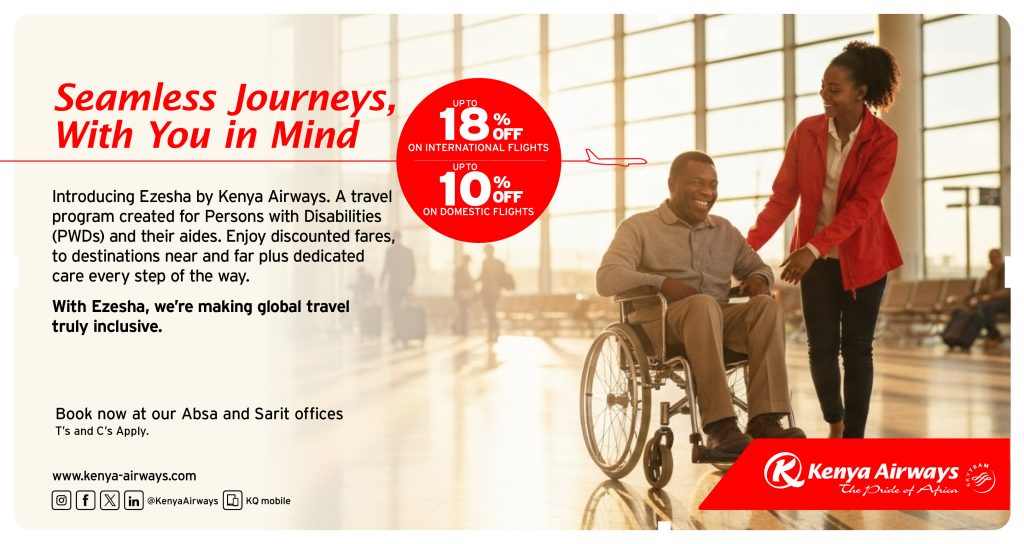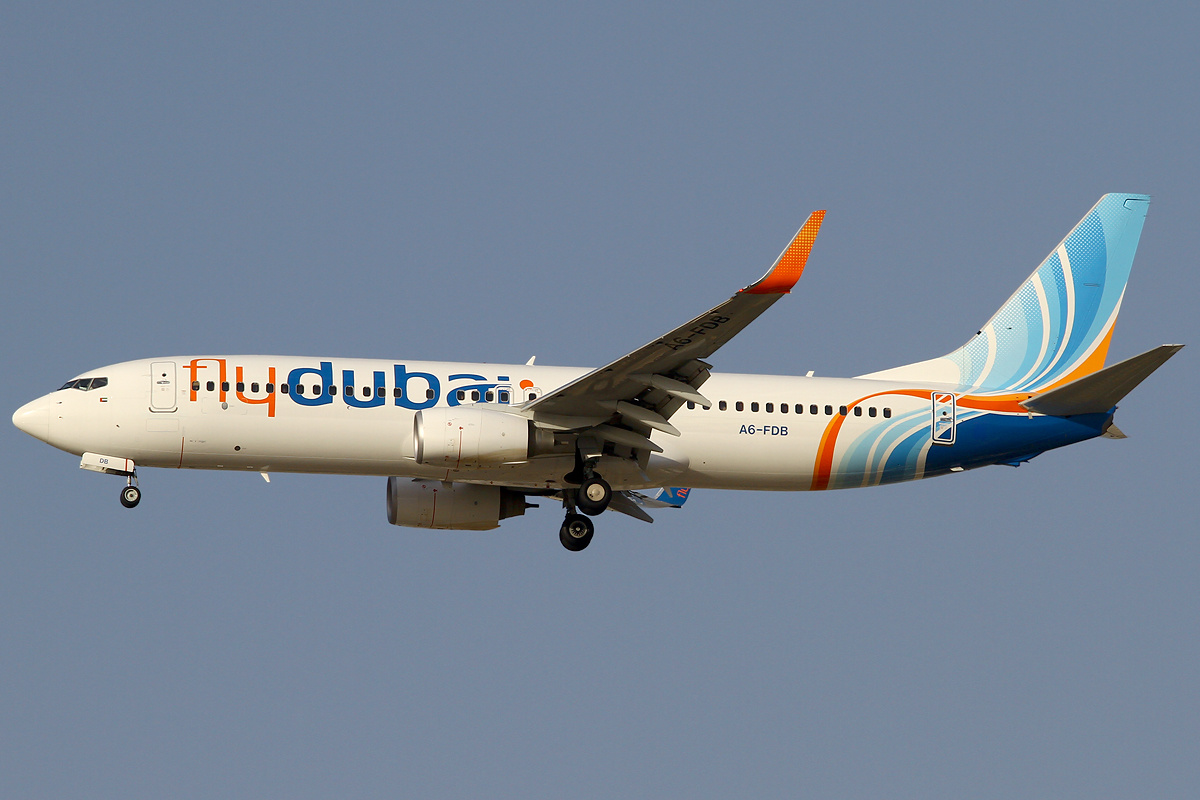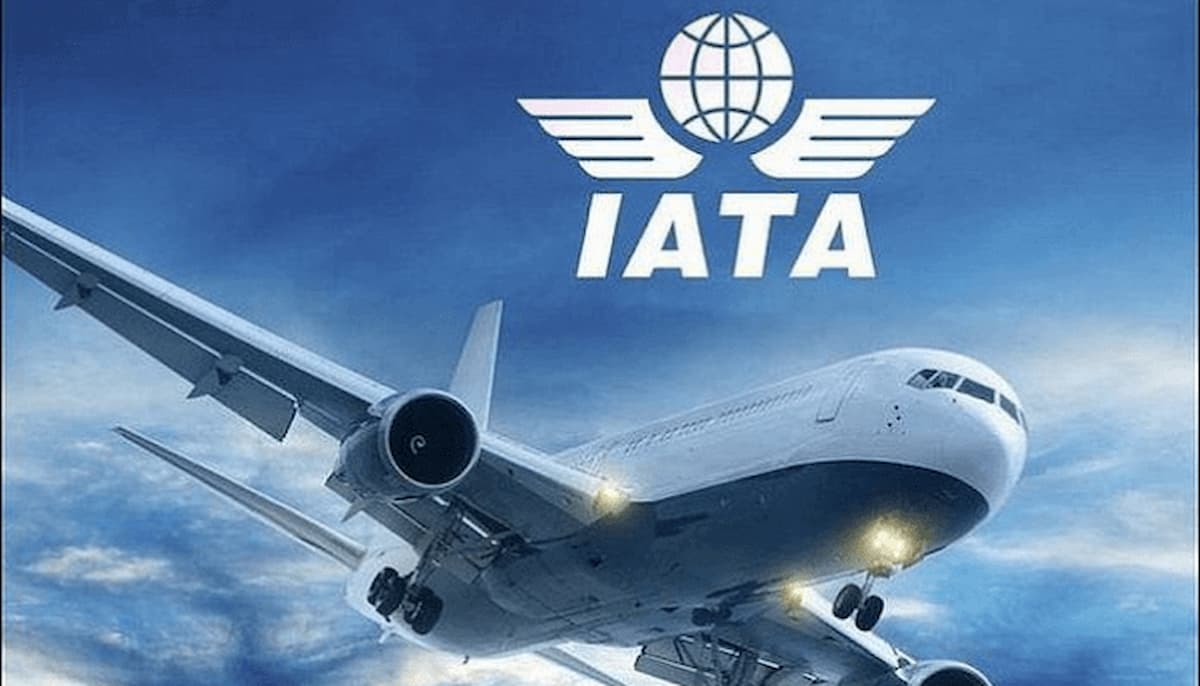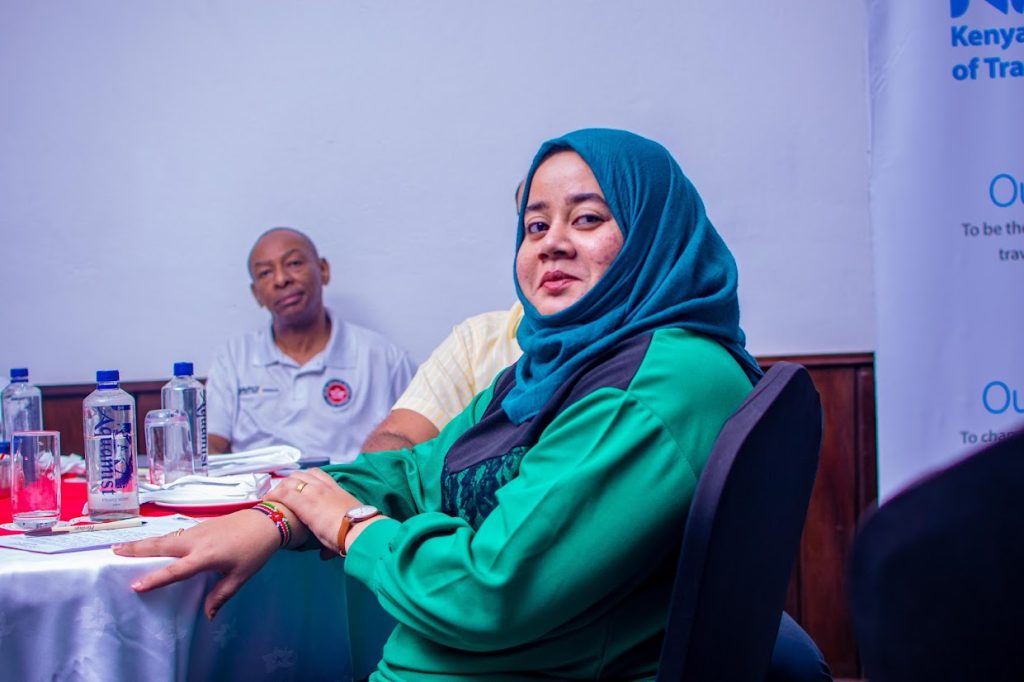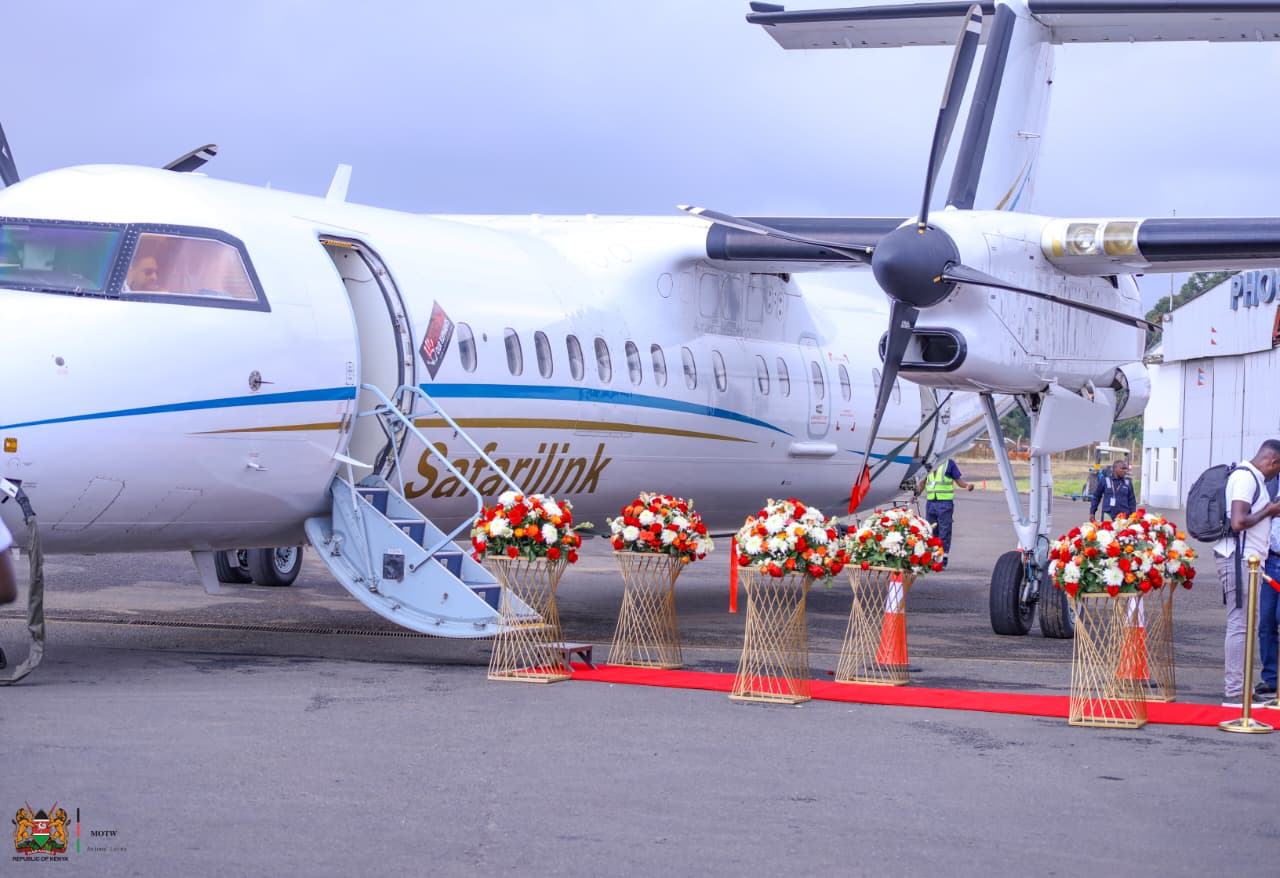Last Friday, the tarmac at Wilson Airport was alive with anticipation as passengers prepared to board Skyward Airlines’ inaugural flight to Vipingo Ridge, Kilifi County. At 2:30 pm, travellers — from tourists to business executives and investors — gathered at the boarding gate. Hon. Lady Justice Njoki Susanna Ndung’u — a renowned judge of the Supreme Court of Kenya — officially called passengers to board, marking the ceremonial start of a route that promises to redefine access to Kenya’s North Coast.


From Boarding to Takeoff
Boarding was smooth and organised, with airline staff scanning tickets, assisting with luggage, and welcoming passengers. Inside the Dash 8‑200 turboprop, sunlight streamed through the cabin windows, offering a glimpse of Nairobi’s skyline as the aircraft taxied and lifted off toward the coast.



The approximately one-hour flight revealed Kenya’s diverse landscapes in transition, from sprawling urban centres to the lush greens of Kilifi County. The descent into the Vipingo Ridge Airstrip was gentle, facilitated by the recently upgraded runway, allowing a safe and level landing. Diana Nyambura, CEO of Skyward Airlines, said: “This route exemplifies our commitment to smart connectivity, serving both exclusive communities and the wider coastal ecosystem, and offering travellers reliability and convenience.”
Economic and Tourism Significance
Madam Selina Gor, Regional Airport Manager at Kenya Airports Authority (KAA), welcomed the milestone, emphasising KAA’s continuous investment in infrastructure that enables airline expansion. “We encourage more airlines to explore new destinations,” she said. “Access drives convenience, business growth, and economic development.”

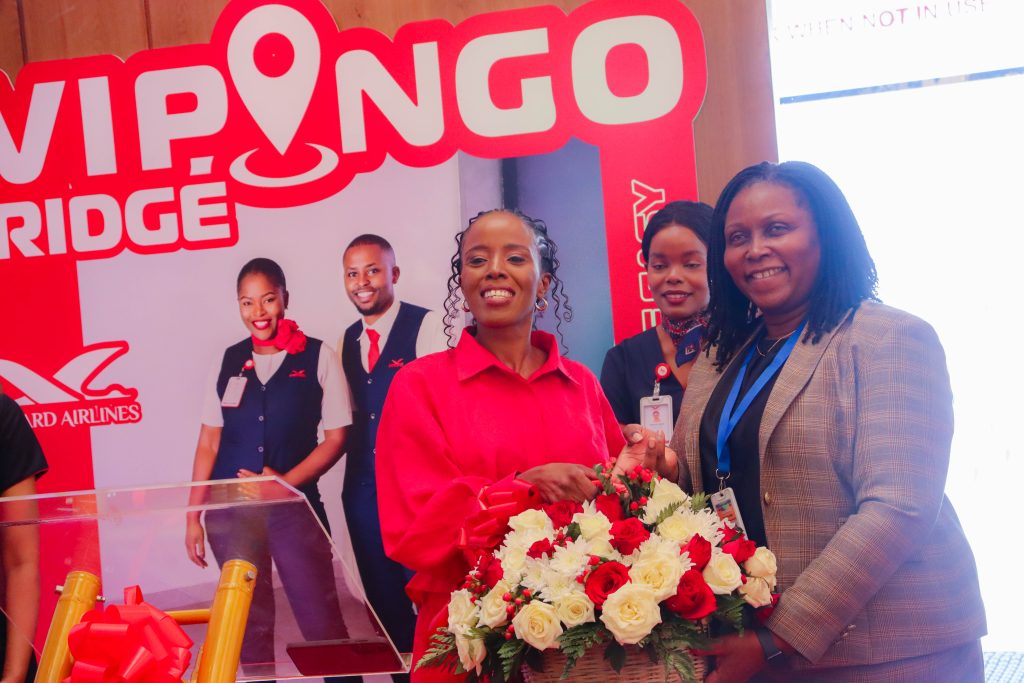

The new flight is expected to boost domestic tourism, stimulate local enterprise, and attract both domestic and international investment. Golf enthusiasts, conference organisers, and lifestyle tourists can now reach Vipingo Ridge quickly, stimulating activity across hospitality, retail, and leisure sectors.
Vipingo Ridge: 20 Years of Lifestyle, Luxury, and Conservation
Celebrating its 20th anniversary as a premier lifestyle destination, Vipingo Ridge boasts an 18-hole PGA-accredited championship golf course, luxury villas, and a wildlife conservation sanctuary registered with the Kenya Conservation and Wildlife Association (KCWA) and licensed by the Kenya Wildlife Service (KWS).

Alex Horsey, CEO of Vipingo Ridge, said: “This inaugural flight is not just about connectivity; it is about creating opportunities for Kilifi County. Improved access means more tourism, new investment, and stronger support for local businesses. It also enables us to host international conferences and sporting events with ease.”
The Bigger Picture
The Nairobi–Vipingo link underscores the strategic importance of domestic air connectivity. By linking emerging lifestyle, investment, and tourism hubs to Kenya’s urban centres, airlines like Skyward are stimulating regional economies, generating jobs, and unlocking long-term development opportunities.
With regular flights now operational, the partnership between Skyward Airlines and Vipingo Ridge represents a new chapter for Kenya’s North Coast, where convenience, economic growth, and sustainable tourism converge to create lasting value for travellers and the local community alike.

